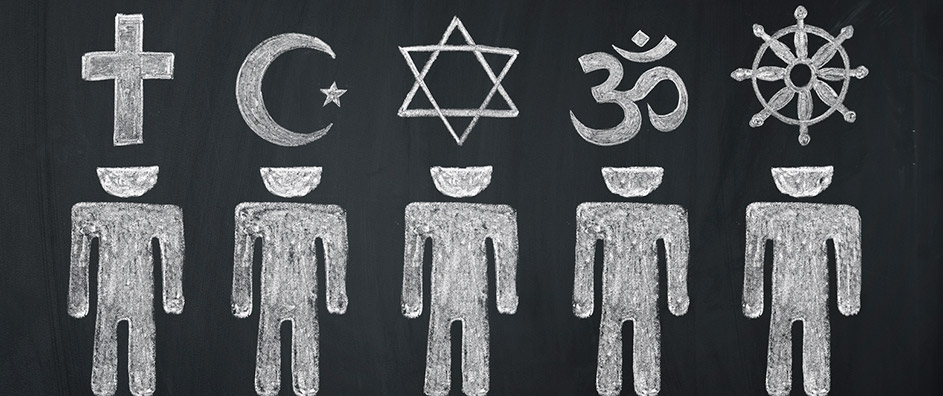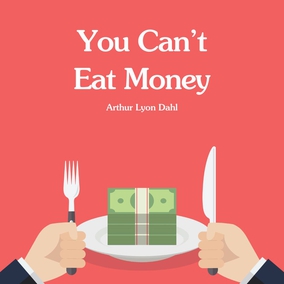The views expressed in our content reflect individual perspectives and do not represent the authoritative views of the Baha'i Faith.
If there’s only one nation in the sky, shouldn’t all passports be valid for it? – Yann Martel
He hoped and prayed that there wasn’t an afterlife. Then he realized there was a contradiction involved here and merely hoped that there wasn’t an afterlife. – Douglas Adams, Life, the Universe and Everything
If you’re an educated young urbanite in a developed country somewhere in the world today, you may not believe in God or religion. In fact, the statistics say that religion has become passé for many of those kinds of people. This pronounced new trend, which has fascinated journalists and pollsters for quite some time now, reflects itself in just about every avenue of modern urban existence.

If you fit that description, you may avoid even talking about God or religion, because it might be embarrassing, perceived as naïve or seen as just plain ignorant. As a result of that thinking, a significant prejudice against religion and religious people has developed, with anyone who has a belief system thought of as unsophisticated, not very bright or somehow fanatical. Our secular, materialistic societies require no adherence to belief systems, so many people have simply decided to forego them. Art, literature and entertainment increasingly tend to belittle and satirize religion and those who consider themselves religious. People who do have some kind of religious practice, afraid to be thought of as uncool or unintelligent, often don’t talk about it with their peers. When asked, an increasing percentage of younger urbanites say they’re “SBNR’s”—spiritual but not religious.
These pronounced trends, which have mostly occurred in the urban centers and communications capitals of the developed world, have actually skewed our perceptions wildly. Because the decline in religious belief has happened among those who have a larger influence on news organizations and popular culture, it has made many people believe that religion is in rapid decline across the globe.
Let’s look at the actual statistics to see if that’s true. Here’s what the respected polling organization the Pew Research Center concluded in their most recent 2015 Global Attitudes Survey, when they asked people around the world if they considered religion an important part of their personal identity:
Overall, religion is more important to people in the developing world, with the world’s major economies returning much lower percentages. The United States is an exception to this – over half of Americans consider their religion important to who they are.
In many of the world’s economic powerhouses, the number of people who consider religion important is around 20% or less. For example, in the United Kingdom and Germany only around one in five people said religion was very important in their lives.
The Chinese feel least strongly about religion by some distance – fewer than one in 20 people said it was very important.
But just because an increasing number of people who live in the world’s economic powerhouse countries don’t consider religion important to their identities does not mean the overall global influence of religion is declining. Because only a small minority of the world’s population lives in those developed countries, we tend to vastly overestimate their impact. In fact, statistics tell us, the number of people who think of themselves as religious is growing 23 times faster than those who don’t:
Changing global demographics and populations will see the global religious landscape change significantly by 2050.
By this time the global Muslim population will have nearly caught up with Christians, according to Pew research. Conversely, the number of people who are unaffiliated with any religion will increase much more slowly. This will result in them representing a much lower percentage of the global population.
Reports of the death of organized religion have been exaggerated. According to recent research, the growth of religious populations worldwide is projected to be 23 times larger than the growth of the unreligious between 2010 and 2050.
The Pew Center’s report reveals profound implications for the present and the future:
The impact of religion is on the rise on a global scale. By the middle of this century, the number of people affiliated with a religion is expected to grow by 2.3 billion, from 5.8 billion in 2010 to 8.1 billion in 2050. By contrast, the number of people unaffiliated with any religion (including those who say their religion is “nothing in particular” as well as self-identifying agnostics and atheists) is projected to increase by only 0.1 billion, from 1.13 billion in 2010 to 1.23 billion in 2050. In terms of population shares, this is significantly lower than the peak in the 1970s under communism when nearly one in five people worldwide were religiously unaffiliated, according to the World Religion Database. – 2015 Pew Research Center Global Attitudes Survey
In a little more than three decades, the data shows, the world will have a much greater percentage of religionists than ever before. We will become more religious and more diverse in our beliefs—not less. That increase in religious belief means we need a new way to solve our religious differences, to reduce religious prejudice and suspicion, to do away with dogma and fanaticism, and to find ways to unify. The Baha’i teachings say this challenge has major implications for everyone on Earth:
The primary foundation of the faith of God and the religion of God is this, that they should not make diverse sects and various paths the cause and reason of hatred. – Abdu’l-Baha, A Traveller’s Narrative, p. 42.
Religion should unite all hearts and cause wars and disputes to vanish from the face of the earth, give birth to spirituality, and bring life and light to each heart. If religion becomes a cause of dislike, hatred and division, it were better to be without it, and to withdraw from such a religion would be a truly religious act. For it is clear that the purpose of a remedy is to cure; but if the remedy should only aggravate the complaint it had better be left alone. Any religion which is not a cause of love and unity is no religion. – Abdu’l-Baha, Paris Talks, p. 121.
Next: How to Get Rid of Religious Fanaticism
You May Also Like
Comments

















Unaffiliated has a birth rate of 1.7, 19% under 15, 68% 15-60,13% over 60, 97,080,000 people switching in, 35,590,000 people switching out, and a net conversion of 61,490,000 people in. Fertlity replacement for growth being constant is 2.1 in demographics. So low birth rate, ...rather than conversion is the reason for stagnation and shrinkage of the unaffiliated group. Christianity, Islam, Buddhism, Folk Religion, Other Religions, Judaism, and Hinuduism also have in-depth data like that on them in 20250.
Other Religions has a birthdate of 1.7, 21% under 15, 65% 15-60, 14% over 60, 3,040,000 people switching in, 1,160,000 people switching out, and 1,880,000 people net in. Other religions is made up of 8 medium sized religions and 7 smaller religions. It's hard to say specific things about any of the 15 religions that make up the group from the data as the group is all 15 combined together.
But these are all projections. What religions will grow more than projected, less than projected, or the same? We will see when 2050 comes.
Fertlity rates 1.6-3.1, under 15 19-34%,15-60 59-68%, over 60 7-20%, switching in 260,000-97,080,000 people, switching out 250,000-106,110,000 people, net in 10,000-61,490,000 people, and net out 310,000-66,050,000 people are the projected data range for the eight categories in 2050.